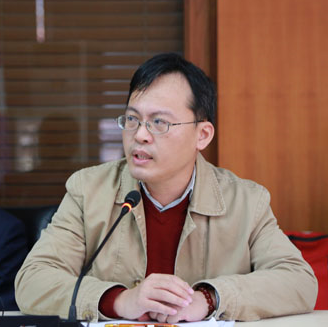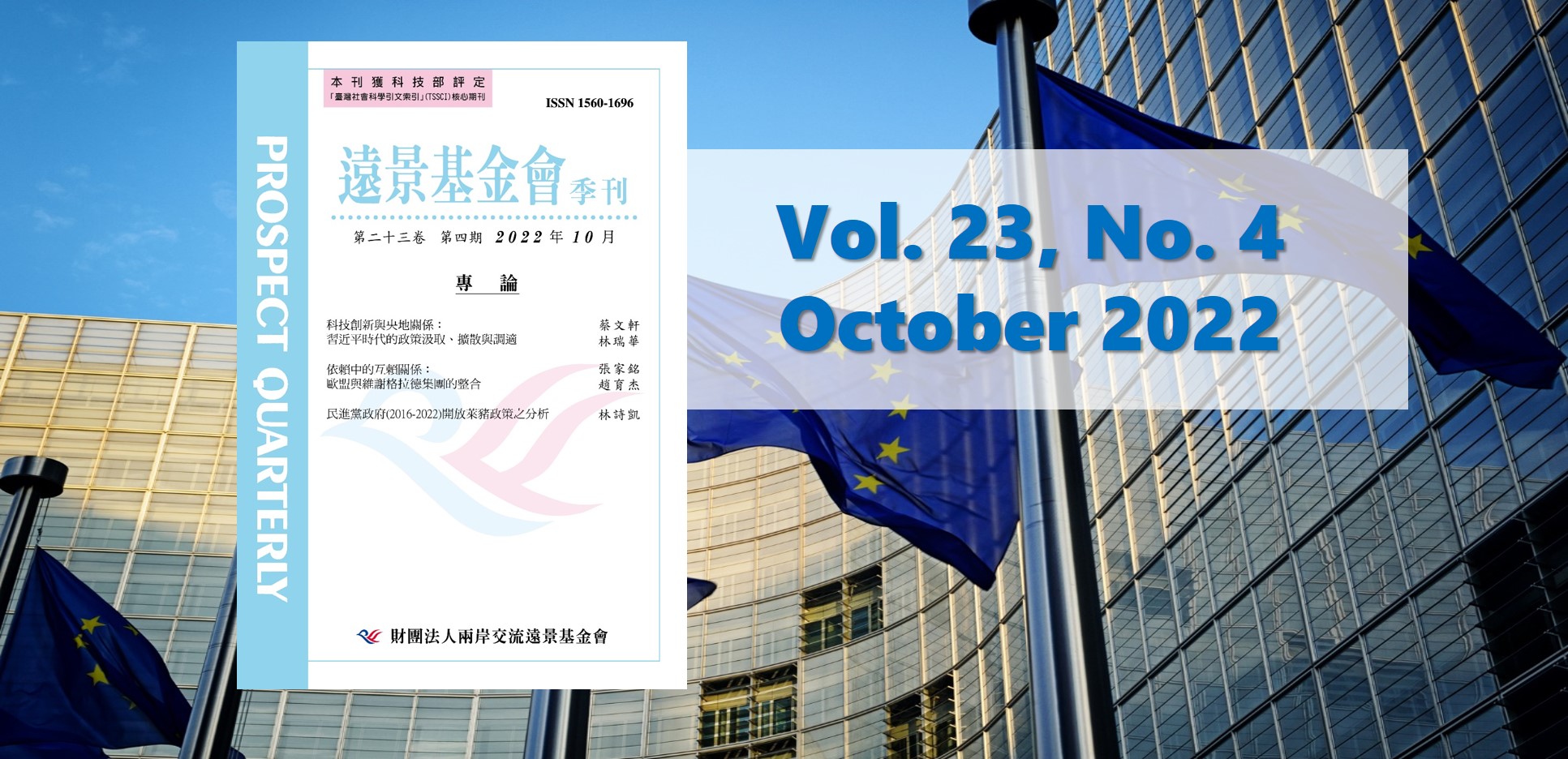Prospect Quarterly 23-4
Technological Innovation and the Relationship between the Central and Local Governments: Policy Drawing, Diffusion and Adaptation in the Era of Xi Jinping
Wen-hsuan Tsai
(Research Fellow, Institute of Political Science, Academia Sinica)
Rui-hua Lin
(Assistant Professor, Department of International and Mainland China Affairs, National Quemoy University)
Abstract
This study proposes the concept of “learning authoritarianism” to discuss the policy learning process of the Chinese government, which includes three elements, namely, policy drawing, diffusion, and adaptation. First, policy drawing denotes that the Chinese Communist Party (CCP) learns appropriate experiences or practices from other countries. Once the central government decides to learn a certain policy, it will then use national power to implement policy diffusion. Finally, policy adaptation, that is, local adjustments of policy content, is conducted in accordance with local conditions to strengthen the flexibility of policy implementation and give feedback on relevant experiences to the central government to assist it in further amending relevant laws and regulations. We use the “double innovation” (shuang chuang) policy of the Xi Jinping period as a case study and discuss the cases of Fujian and Guangdong to elucidate local policy adaptation and feedback to the central government. In the operation of “learning authoritarianism,” the central government strengthened its control over the process of policy implementation and allocated local governments with limited autonomy for innovation.
Keywords: Policy Drawing, Policy Diffusion, Policy Adaptation, Learning Authoritarianism, Double Innovation
Interdependence in Dependence: Integration of the EU with the Visegrád Group
Chia-ming Chang
(Professor, Department of Sociology, Soochow University)
Yu-jie Zhao
(Postgraduate Student, Department of Sociology, Soochow University)
Abstract
This study reviews the results of the EU’s eastward enlargement and the Visegrád Group’s “return to Europe” from the perspective of historical analysis of structural dependence. Adhering to the eclectic vision and method of international relations, from the three concepts of idea, power and institution, firstly, it analyzes the process and results of the eastward expansion of the original EU-15 countries for nearly 20 years; then, the mode of action of the V4 Group since its accession to the EU in 2004, and the derived ones. Through these, it finds that the integration of the two parties not only highlights the traditional structural relationship, but also inevitably raises the issue of identity. Relatively speaking, in the process of returning V4 countries to Europe, although there is still an unequal dependence on the original EU-15 countries, they also present a complementary and mutually dependent relationship — the relationship of interdependence in dependence. This paper provides a clearer view and understanding of the EU’s international functioning and its integration issues.
Keywords: EU Eastward Enlargement, Return to Europe, EU-15, Visegrád Group, Eclecticism in International Relation
An Analysis of the DPP Government’s (2016-2022) Ractopamine Decision
Shih-kai Lin
(Adjunct Assistant Professor, General Education Center, Tainan National University of the Arts)
Abstract
This study examines the DPP’s U.S. pork open policy from neoclassical realism. The study finds that: (1) the DPP government’s U.S. pork open policy is affected by the power distance; (2) the cognitive change of the DPP’s U.S. pork issue is affected by the power distance; (3) the DPP’s U.S. pork open policy is affected by the cognitive change of the DPP’s U.S. pork issue; (4) the cognitive change of the DPP’s U.S. pork issue is a mediator; (5) The degree of dispute over the U.S. pork issue is a moderator and the dispute level of the issue is cooler, the more favorable for the DPP to implement the U.S. pork open policy. Based on the results, a complete model was developed to help those who are interested in the U.S. pork issue to comprehensively understand the relationship among power distance, issue cognition, the degree of dispute over the issue and policy implementation on the DPP’s U.S. pork open policy.
Keywords: Neoclassic al Realism, Issue of Pork Containing Ractopamine, Power Distance, Controversy Level of Issue, Policy Implementatio





